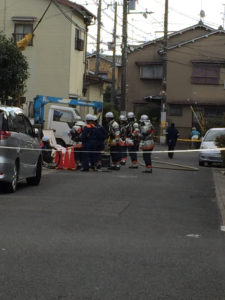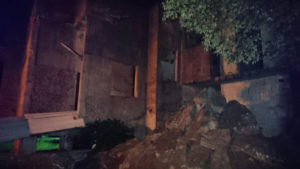
There are risks associated with any investment – loss of capital, finance, leverage and liquidity risks and so on.
Not like buying the paper assets such as REITS, many of these are only relevant to the direct investment (where the investor invests, owns and has control over the real estate asset).
This article will highlight the main risks associated with investing in real estate in Japan and provides commentary on how to analyse and mitigate these risks.
Today I am going to discuss the risks at time of acquisition.
Unlike regulated industries such as accounting and financial planning, working for a property company (as distinct from working as a traditional real estate agent),
does not require a great deal of education, experience, or study prowess. Marketing investment property requires nothing really but the ability to sell.
That is one of the reasons why there are unlicensed (often rogue )
‘property consultants’ in Japan.
Engaging in the marketing activity to lure the investors without holding a license is against the
Building Lots and Buildings Transaction Business Law. If your consultant or agent do not hold
the license, your contract is not protected by the said law.
For more information, please see my post on February 11, 2018.
Are there any rogue real estate agents in Japan ?
At the end of the day, even the good agents cannot guarantee the success of the investment and thus investors must learn the risks and returns
before they make a investment.
There was the defect scandal that the apartment tilted in Yokohama in 2017
due to the illegally constructed structures.
It is hard to mitigate construction risk in developing markets where the construction process is more labour intensive or has less regulations set of best legal requirement.
Poorly constructed buildings are existing in some markets like China,India and Vietnam.
It is due not to the country itself but to the specific rogue construction company.
Buildings have collapsed in many emerging markets and, although rare, it does suggest techniques and working practices are poor
even in developed countries (again it is very rare in Japan)
A well-constructed building is perhaps an obvious requirement for a sound real estate investment.
However in practice when individual investors purchase investment property,
there is a risk of purchasing a defective property.
If there are defects, the value of the property itself will decline, and the occupancy rate will also decrease,
so there is a possibility that sufficient rent income can not be obtained.
I will explain the risk of defects and how to mitigate them in the following.
Initially, in Japan there are three types of risks of ‘defects’ the industry professionals usually recognize.
These are physical defects, psychological defects and environmental defects.
1. What is a physical defect?
Physical flaws are situations where the building leaks, termites occur, and the earthquake resistant strength is insufficient.
2. What is a psychological defect?
Psychological defects are, for example, cases where there are suicide or murder cases in the past in rooms.
Those rooms are lack the comfort of living in psychological aspects.
Japanese tenants usually do not want to rent such rooms.
3. What is environmental defect?
An environmental defect refers to a state in which there is a problem in the surrounding environment of the property.
For example, if there is a yakuza (gangs) office nearby and people who live close to the property can’t have a safe and comfortable life.
Let’s take a closer look at each of them.
1. Physical defects
Specifically, the physical defects are as follows.
Leaking, Termite damage, Building tilting and
breakdown of drain pipe
How to mitigate physical defects ?
When purchasing real estate, there is a document “Property Status Confirmation Form” as an attached document of the contract.
Since it must describe the present condition of the following items, please check the form closely to find out if there are physical defects.
Common Items of “Property Status Confirmation” are as follows.
Leaking
Termite damage
Defects in buildings (tilting, corrosion, defects, etc.)
Asbestos use survey
Breakdown / leakage of plumbing facilities
construction confirmation inspections at
the time of new construction
the specifications for structure and design
Seismic diagnosis
History of repair and renovation
2.Psychological defects
Psychological flawed property is generally called “accident property” in Japan.
Common accidents are as follows.
Suicide and murder in the building
Death due to a building’s fire
Suspicious death in the building
How to mitigate buying psychological defects ?
As for the property that an accident happened such as suicide and suspicious death,
there is an obligation for the seller to submit information as a notification by law.
However, there is no specific legal requirement about the description
of the incident which is the regulatory grey area.
Then how to deal with cases when it turns out that it is a psychological defect after purchase?
If you find that it is a psychologically defective property after purchasing it, what will be dealt with?
The existence of “flaw” including psychological defects is good enough to cancel the contract (the legal reason to cancel the contract),
so in fact if there is a psychological defect but the seller has not disclosed the information
you can demand the compensation.
3. Environmental defects
Specifically, the environmental defects are as follows.
Noise from the neighborhood
Abnormal odor
Issues due to the availability of sunshine
Yakuza office
How to mitigate environmental defects ?
It is difficult to block out all environmental defects.
But please spend time on going to the site yourself before purchasing the property to check the surrounding environment or to check whether the property management company has complaints
such as noise, odor from the residents is possible.
In addition, when a Yakuza office is in the same building, the seller has the obligation to notify the buyer.
It is required as “disclosure matter” by law.
Toshihiko Yamamoto
Real estate investing consultant and author.
Toshihiko is currently writing a book about the real estate investing in Japan
for foreign investors.
Founder of Yamamoto Property Advisory in Tokyo.
International property Investment consultant and licensed
real estate broker (Japan).
He serves the foreign companies and individuals to buy and sell
the real estates in Japan as well as own homes.
He holds a Bachelor’s degree in Economics from
Osaka Prefecture University in Japan
and a MBA from Bond University in Australia

